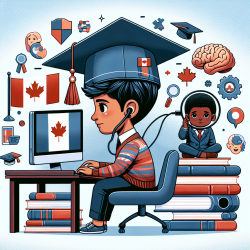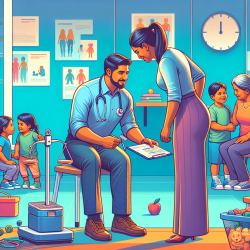Introduction
In the realm of special education, the integration of innovative strategies can significantly enhance the delivery of services. Drawing inspiration from a study conducted in Odisha, India, on male engagement in maternal, newborn, and child health (MNCH) services, we explore how similar strategies can be applied to improve special education services in school districts.
The Study: Male Engagement in Odisha
The research titled "Male engagement as a strategy to improve utilization and community-based delivery of maternal, newborn and child health services: evidence from an intervention in Odisha, India" highlights the positive impact of involving men in health services traditionally dominated by women. The study found that Male Health Activists (MHAs) played a crucial role in complementing the efforts of female health workers, thereby enhancing the delivery and uptake of health services.
Key Findings and Their Implications
The study revealed several key outcomes:
- MHAs facilitated access to health centers, especially during emergencies, by providing transportation and logistical support.
- They played a vital role in mobilizing community members for health events and raising awareness among men about MNCH and family planning.
- The involvement of MHAs led to a more balanced division of labor, allowing female health workers to focus on specific tasks while MHAs handled others.
These findings underscore the importance of male engagement in enhancing service delivery, which can be extrapolated to the field of special education.
Applying the Insights to Special Education
In the context of special education, engaging male figures, such as fathers or male educators, can lead to improved outcomes for students. Here are some strategies to consider:
- Increased Involvement: Encourage fathers and male guardians to participate in Individualized Education Program (IEP) meetings and school events. Their involvement can provide diverse perspectives and foster a more inclusive environment.
- Male Role Models: Recruit male educators and staff to serve as role models for students, particularly in fields where male representation is low. This can help break down gender stereotypes and inspire students.
- Community Engagement: Organize workshops and seminars that target male community members, educating them about the importance of special education and how they can contribute to the success of students with special needs.
Encouraging Further Research
While the study from Odisha provides valuable insights, further research is needed to tailor these strategies specifically to the field of special education. Practitioners are encouraged to explore the following areas:
- The impact of male engagement on student outcomes in special education settings.
- Barriers to male participation in special education and strategies to overcome them.
- The role of male educators in fostering an inclusive and supportive learning environment.
Conclusion
The integration of male engagement strategies from the Odisha study into special education can potentially transform service delivery and outcomes for students. By fostering a more inclusive and collaborative environment, school districts can ensure that all students receive the support they need to succeed.
To read the original research paper, please follow this link: Male engagement as a strategy to improve utilization and community-based delivery of maternal, newborn and child health services: evidence from an intervention in Odisha, India.










